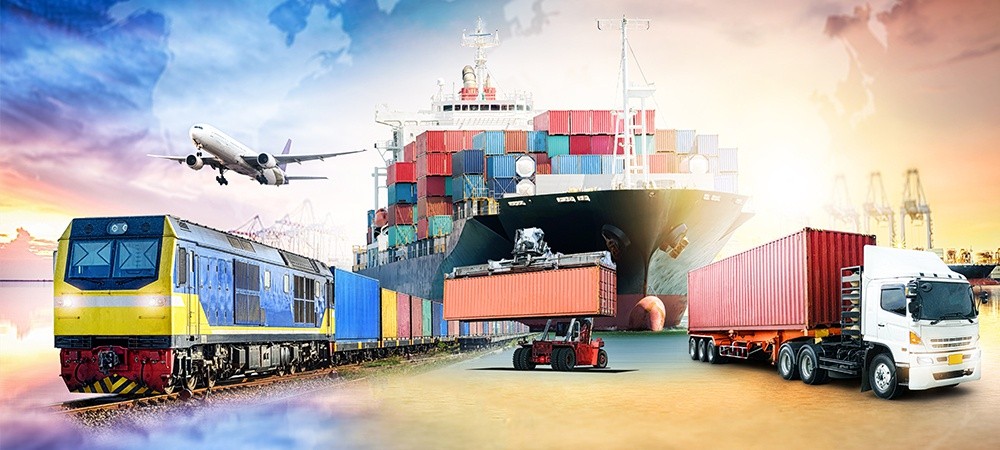Dry van shipping is one of the most reliable and versatile forms of freight transport available today. Understanding its various cost components can profoundly affect your bottom line.
When opting for dry van shipping, it’s essential to consider factors like peak periods. Typically, dry van shipping is more expensive during holidays like Thanksgiving. Also, the distance can impact the pricing for dry van shipping.
Here, we explore key elements affecting the cost of dry shipping. By finding cost-effective shipping solutions, you can make informed decisions to strengthen logistics operations while managing your budget more effectively.
Cost Factors for Dry Van Shipping
As with any shipping method, several factors determine the cost of dry van shipping. Several factors impact how much dry van shipping costs, from distance to weight to delivery time.
Here are some factors to consider,
Distance and Route
A critical factor in dry van shipping costs is distance and route coverage during transportation. Longer journeys increase fuel consumption, maintenance expenses and driver compensation costs.
Also, the complexity of the route through remote or busy urban regions increases overall costs significantly.
To further lower expenses, consider consolidating shipments or using route planning software which will identify the most cost-effective path. Working directly with carriers who know their routes could save time and cost.
Freight Weight and Volume
Your cargo’s weight and volume directly affect its dry van shipping costs, with heavier or bulkier cargoes necessitating higher fuel consumption costs.
Also, freight weight leads to incurring toll charges that increase costs per unit of goods you transport.
To lower costs further, try packing more efficiently by eliminating empty spaces within the trailer. Doing this increases volume utilization while decreasing costs per unit of goods you transport.
Load optimization technology can also assist with efficiently organizing goods within it, further decreasing shipping expenses.
Fuel Prices
Fluctuating fuel prices can significantly impact the cost of dry van shipping, with businesses having little control over this variable cost factor.
But they can still use strategies to mitigate its negative effects by staying informed of current price trends.
Also, you can select carriers who use efficient practices and eco-friendly technologies. Exploring alternative fuel options or negotiating fuel surcharge agreements may stabilize your budget.

Seasonal Demand and Peak Periods
Increased shipping demand during seasonal holidays or peak production times can significantly increase costs.
Arranging with shipping providers ahead of time to lock in more favourable terms and avoid unexpected cost spikes can ensure smooth operations during this period.
Establishing long-term partnerships among carriers during off-peak periods could yield preferential rates during peak seasons.
Related Article: The Risks of Using Unprofessional Shippers or DIY Shipping & How You Can Avoid Them
Carrier Selection
Selecting an ideal carrier for dry van shipping is vital to optimizing costs. Different carriers may offer differing rates and additional services.
Thus, it’s essential to compare rates, track records, and fees before choosing one with the lowest bid price.
It’s tempting to choose the cheapest offer price instead of considering reliability and efficiency. Often, longer relationships may lead to better negotiation opportunities and cost-efficient rates.
However, consider intermodal transport (combinations of rail and trucking services) as it significantly saves costs over longer distances!
Accessorial Services
Additional costs such as inside delivery, liftgate assistance or expedited shipping may add an unnecessary layer to your dry van shipping expenses. While certain services may be essential to specific shipments, you can eliminate others to minimize expenses and maximize savings.
For instance, if recipients can unload goods themselves, eliminating liftgate services could save money without impacting delivery or service quality. Ensure carriers understand your specific shipping needs to prevent unnecessary or expensive add-ons from being added to shipments.
Freight Classifications
The National Motor Freight Traffic Association (NMFTA) defines freight classifications based on various criteria, including density, handling costs, value and stowability. Your cargo’s classification affects its shipping rate; higher classifications typically incur greater expenses.
Accurate classification is essential to avoid unexpected charges or negotiate fair rates with carriers. Collaborate closely with them during this process and seek opportunities for reclassification or density optimization that could reduce expenses.
Investments in Technology and Automation
Making smart investments in technology and automation can drastically enhance the efficiency of your shipping process while leading to long-term cost savings. Transportation Management Systems (TMS), for example, can optimize route planning, consolidate shipments, and track deliveries in real-time.
Similarly, TMS reduces errors from inventory tracking errors, while using RFID or barcode technology prevents errors with inventory management. It also eliminates unnecessary expenses.
Adopting digital strategies helps streamline operations, increase visibility, and make data-driven decisions to optimize costs more effectively.
Related Article: How to Negotiate Freight Rates

Choose RoadLINX’s Cost-Saving Dry Freight Services
Dry van shipping remains an efficient and economical method for transporting goods across the country. From selecting carriers and routes carefully to adopting technology and automating processes, there are various strategies you can employ to reach cost-effective dry van solutions.
By considering the factors that affect the cost of dry van shipping, you can make informed decisions leading to success in supply chain environments.
If you’re looking for reliable and cost-effective dry van shipping solutions, contact us at RoadLINX today. Our experienced team is ready to assist you with all your transportation needs.
Let us help you optimize your shipping expenses and ensure timely and secure delivery of your goods. Call us today at 905-760-1141 to discuss dry van strategies optimised for your business needs.



